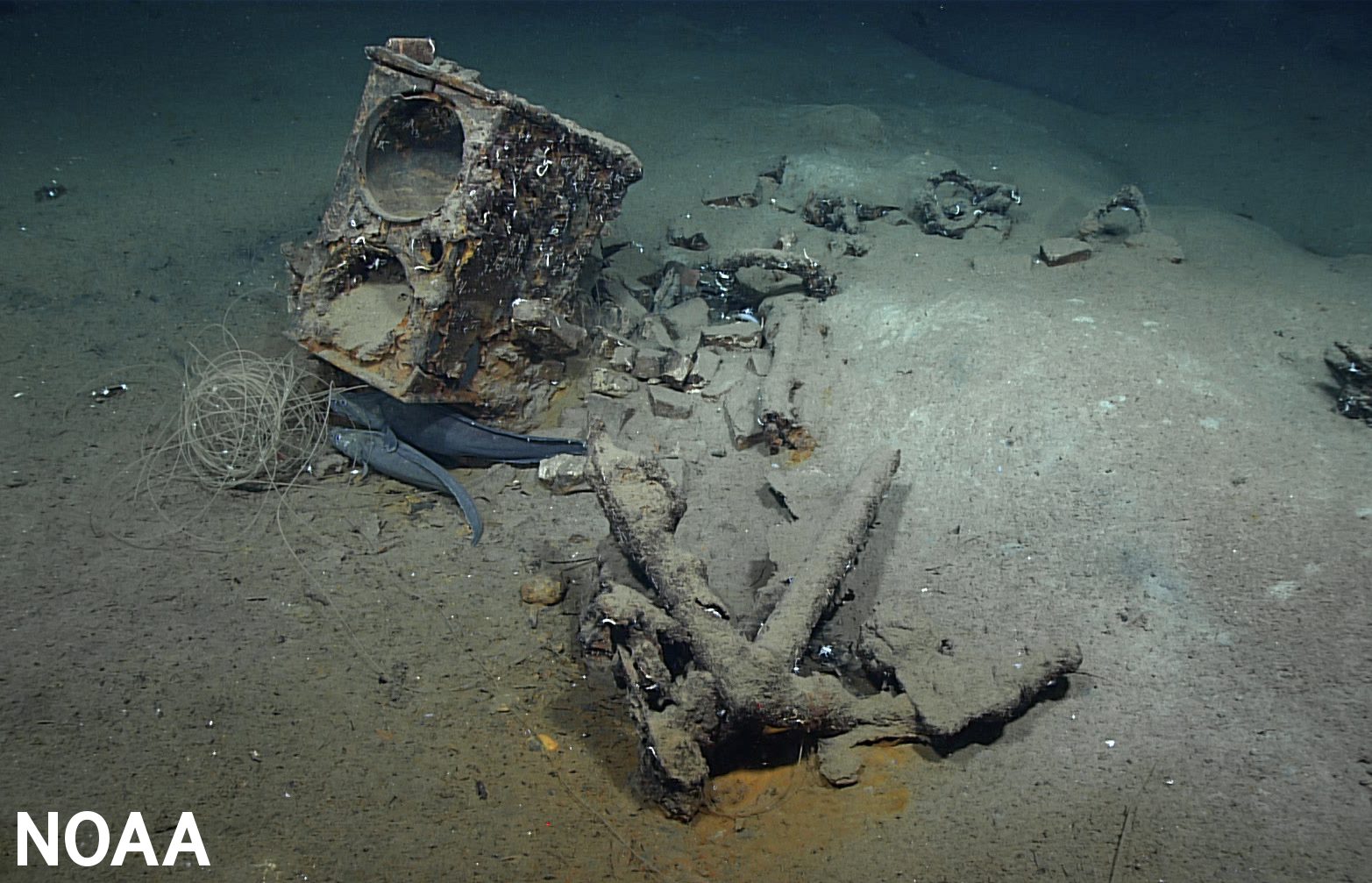La Niña Conditions Return
La Niña conditions have emerged in the equatorial Pacific and are expected to persist through the Northern Hemisphere winter, with forecasters predicting a 55% chance of transition to ENSO-neutral conditions...

Updated: April 21, 2023 (Originally published March 23, 2022)
The National Oceanic and Atmospheric Administration (NOAA) announced Wednesday the discovery of a 207-year-old whaling ship in the Gulf of Mexico.
The ship, called Industry, was a 64-foot long, two-masted wooden brig that is notable for employing Black and Native American mariners as essential crew.
NOAA and its partners used a remotely operated vehicle to explore the wreck first located by an energy company in 2011, later confirming it as the Industry.
The whaling brig was built in 1815 in Westport, Massachusetts and used to hunt whales across the Atlantic Ocean, the Caribbean and the Gulf of Mexico for 20 years. Much of that time it was whaling primarily for sperm whales more than 70 miles off the mouth of the Mississippi River.
The Industry was lost when a strong storm snapped its masts and comprimised its hull on May 26, 1836. It is the only whaling ship known to have been lost in the Gulf of Mexico, out of 214 whaling voyages from the 1780s to the 1870s, according to NOAA.
Local newspapers from the time reported that the crew was rescued by another whailing ship and returned to Westport. While the crew list for the final voyage was lost with the ship, lists of crews from previous voyages describe crewmembers and officers as including Black people, Native Americans, White people and multiracial people.
“Today we celebrate the discovery of a lost ship that will help us better understand the rich story of how people of color succeeded as captains and crew members in the nascent American whaling industry of the early 1800s,” said NOAA Administrator Rick Spinrad. “The discovery reflects how African Americans and Native Americans prospered in the ocean economy despite facing discrimination and other injustices. It is also an example of how important partnerships of federal agencies and local communities are to uncovering and documenting our nation’s maritime history.”
Industry has also been traced to the life Paul Cuffe, a mariner and entrepreneur whose father was a freed slave and mother was a Wampanoag Indian. Cuffe started whaling as a teenager and became a successful shipbuilder, merchant, abolitionist, philanthropist, founder of an integrated public school and among the leaders of a project to settle freed Black people in a new colony in Africa. His son, William, was a navigator on Industry, while his son-in-law, Pardon Cook, was also an officer on the brig. Cook is believed to have made the most whaling voyages of any Black person in American history.
“Finding the Industry is an amazing opportunity to tell a much fuller story of Paul Cuffe’s accomplishments as a whaling captain, businessman and social activist bent on finding a way to end the slave trade,” said Lee Blake, president of the New Bedford Historical Society.
SEARCH Inc., working with the Department of the Interior’s Bureau of Ocean Energy Management, plans to nominate the wreck site for the National Register of Historic Places as part of a larger BOEM project, led by SEARCH, to document historic 19th century shipwrecks in the Gulf of Mexico.

Subscribe to gCaptain Daily and stay informed with the latest global maritime and offshore news
Essential news coupled with the finest maritime content sourced from across the globe.
Sign Up